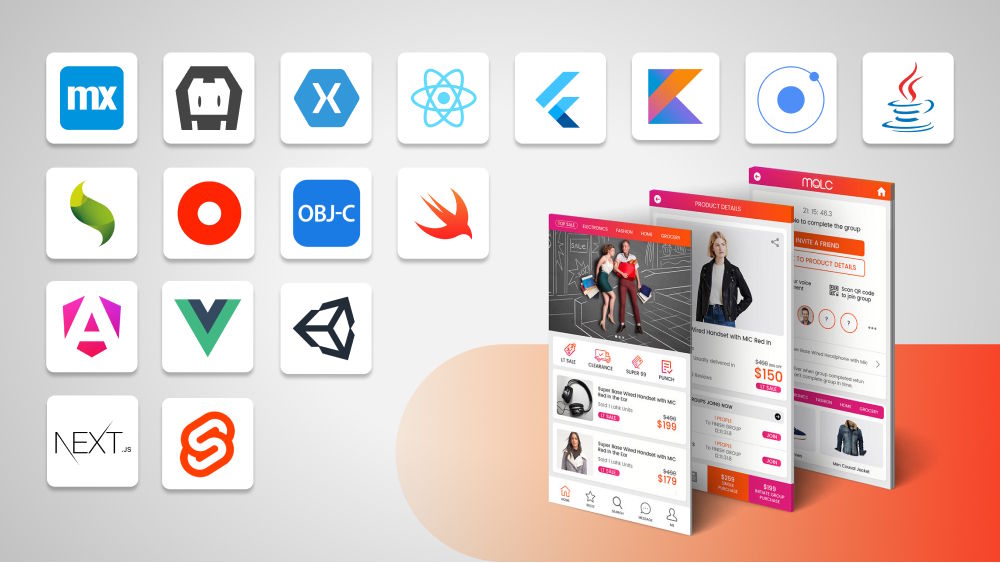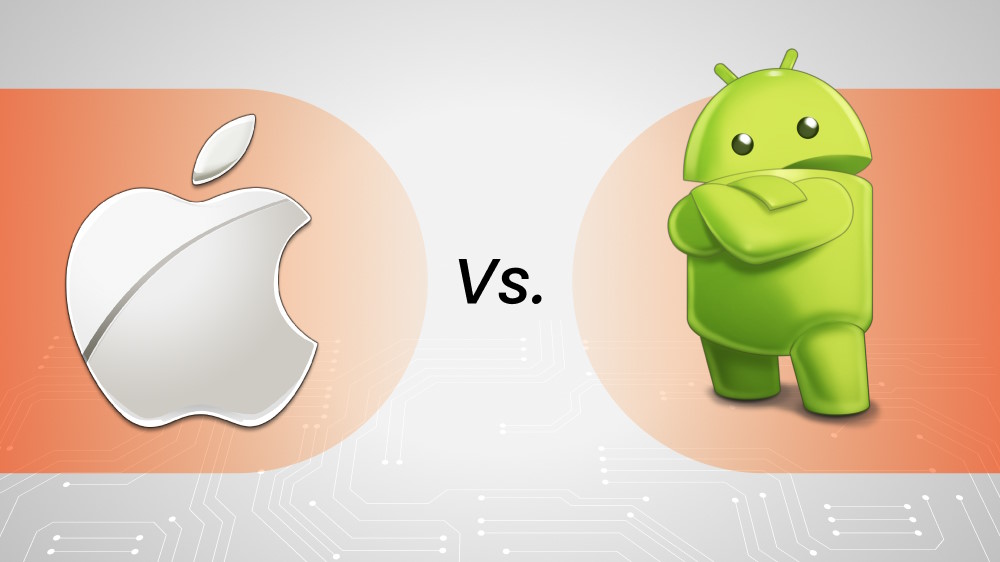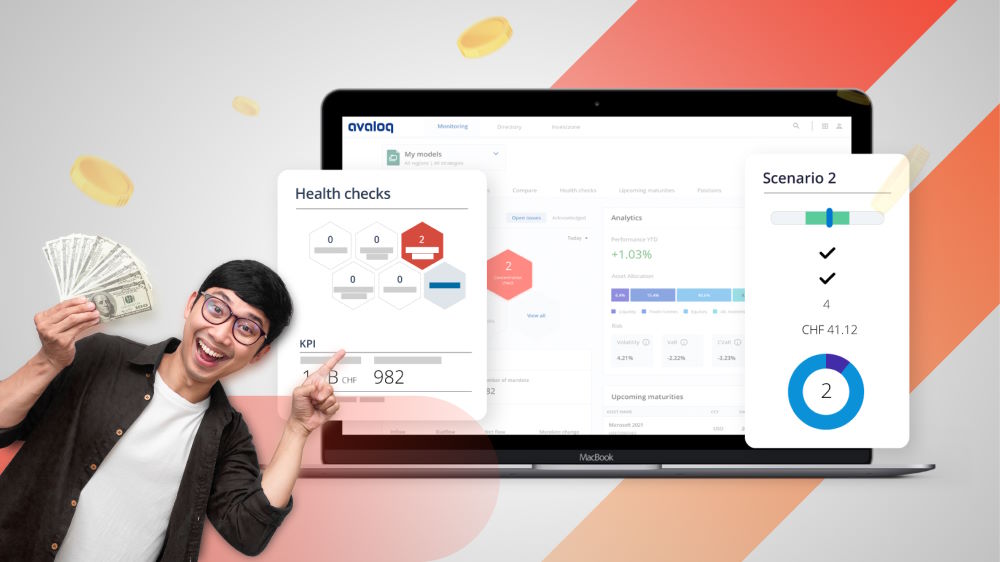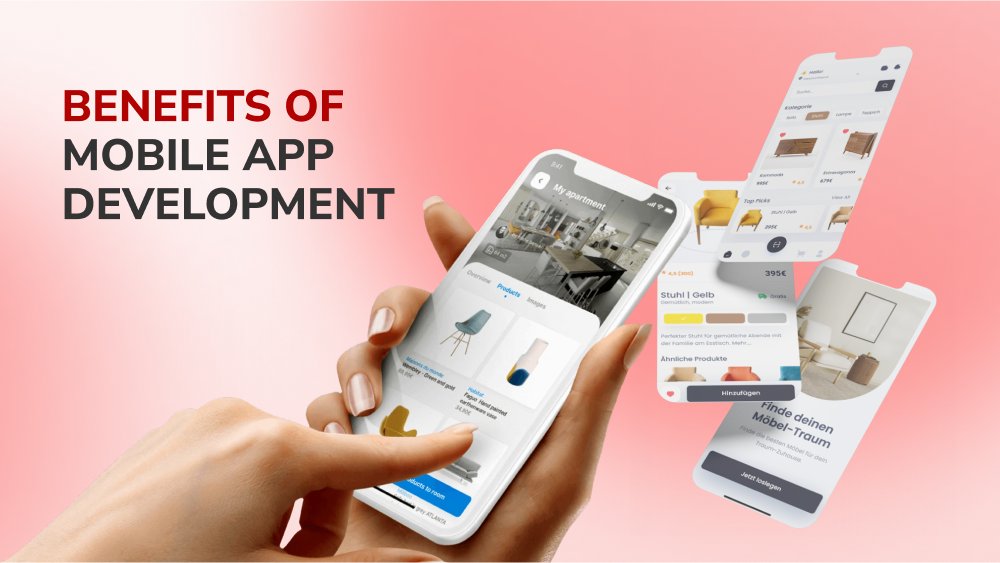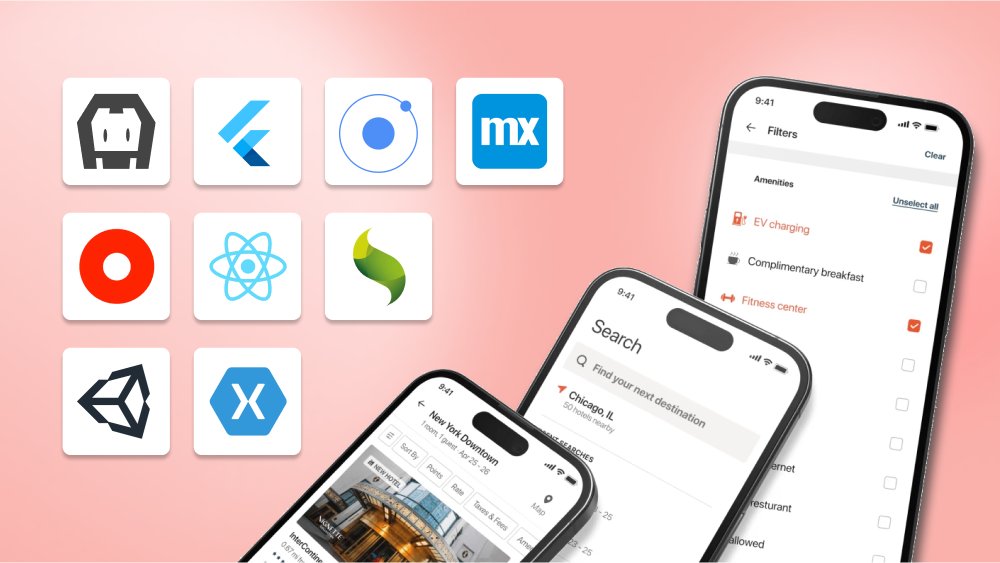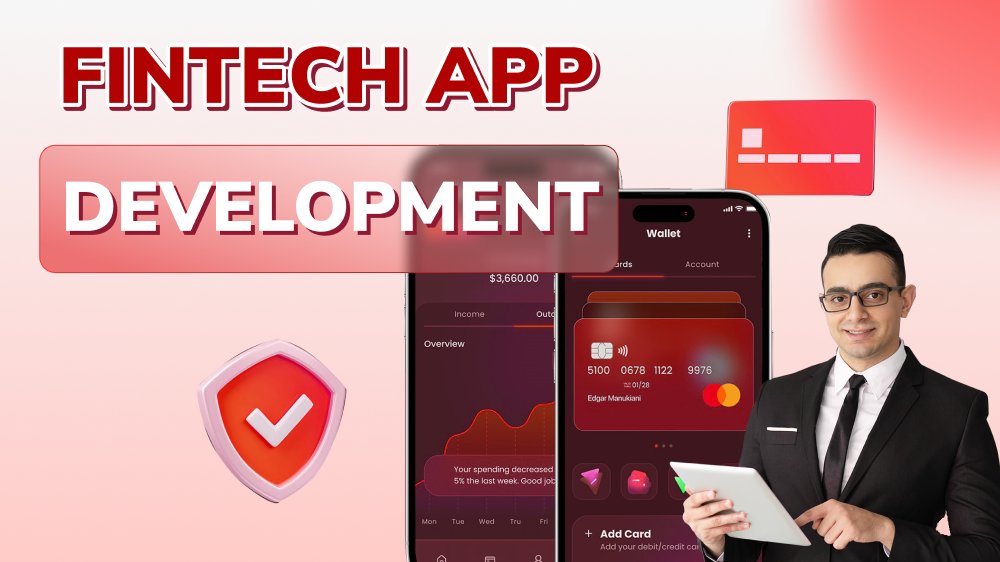How Hospital App Development is Transforming the Healthcare Industry
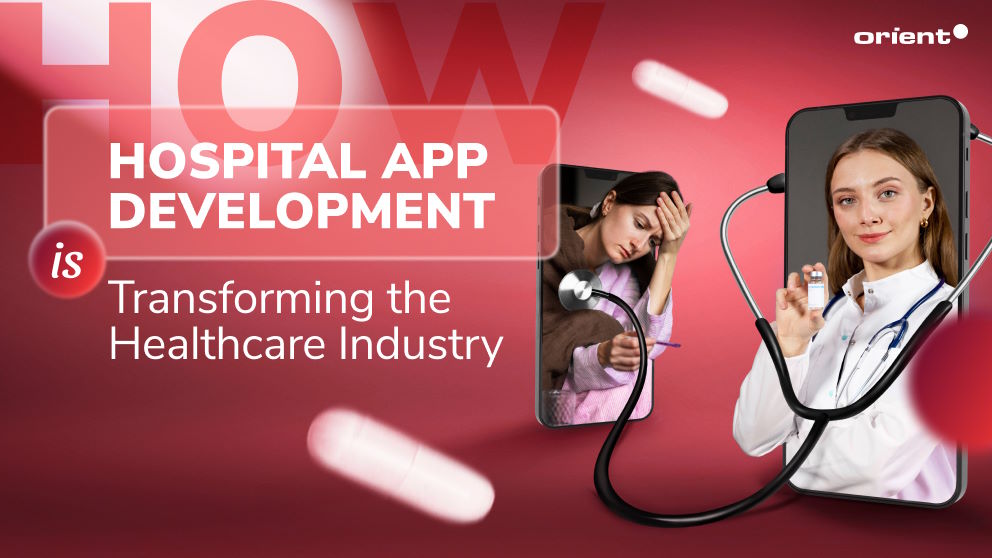
Content Map
More chaptersMental health has always been a major concern for every individual. Rewinding back to the time of the COVID-19 pandemic, during which direct interaction was banned, healthcare apps for patients emerged as life-saving solutions within this space. By leveraging the power of innovative technologies and the rise of digital transformation, hospital app development has played a vital role in supporting users accessing health data and consulting with healthcare providers and professionals entirely remote.
Research has shown a 200% increase in UK public downloads of health apps and the use of digital health services from summer 2019 to 2020. Although hospital services nowadays remain open, the effort to maintain and harness digital health to further simplify the healthcare processes is still in great need. There is indeed no better time for healthcare organizations to embark on the journey of creating their own healthcare mobile application than now. If you are still in the middle of nowhere, we are here to help, starting with this article.
Business Benefits of Healthcare App Development
The rise of mobile devices has facilitated the seamless development and integration of mobile healthcare applications. Hospital mobile apps are now an indispensable part of modern human society, covering all operational activities related to the medical sector. They help improve the user experience by providing patients with on-time service delivery and help doctors minimize the risks of misdiagnosis by automating most processes.
It is not just doctors and patients who benefit from such solutions. Healthcare providers involved in medical app development should have good reasons for doing so. What could these reasons be?
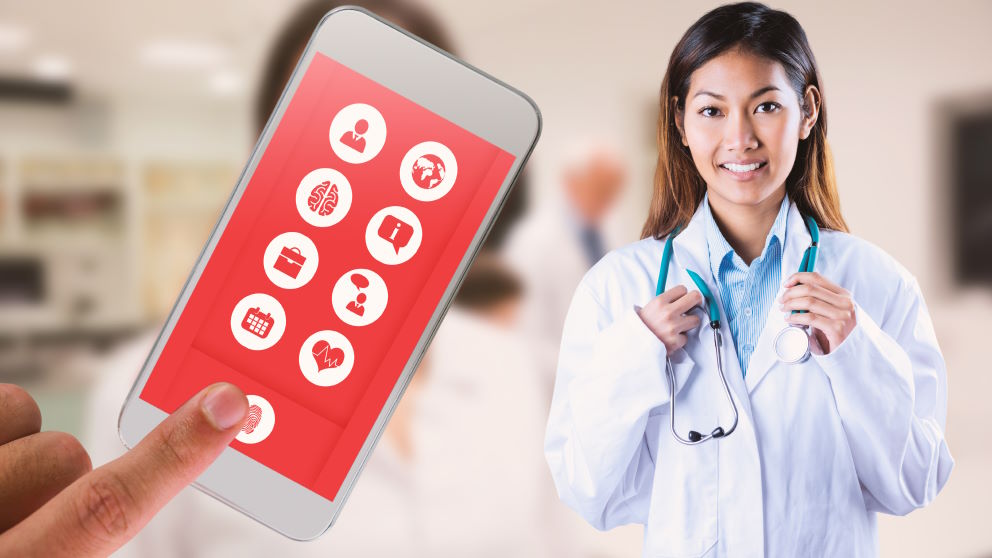
Join Hands in Transforming the Healthcare Industry
Advances in software development technologies, evolving trends, changing consumer expectations, and the need for improved process efficiency are driving the demand for digital transformation in the healthcare industry. By taking part in the hospital application development processes, businesses optimize healthcare delivery throughout the entirety, from enhancing the accessibility of medical assistance remotely to streamlining in-hospital workflows and services.
However, the positive spread of professional healthcare apps can only maximize their potential when receiving cooperation from the community and health organizations. Actively participating in the implementation of such applications helps businesses to drive innovation and positive change to the sector, further overcome potential challenges ahead, and bring about meaningful improvements.
Boost Hospital Internal Efficiency at Every Stage
Running hospital operational activities can be more complex than one might think. As multifaceted organizations that involve various departments, individuals, and administrative tasks, healthcare providers are responsible for storing patient data, managing medical records, scheduling appointments, billing, and invoicing, etc. These tasks, if handled using traditional methods that require human intervention, will cause huge losses in time, budget, and human resources.
The use of mobile health apps in recent years has proven to be beneficial in contributing to overall efficiency within healthcare settings. By letting healthcare apps automate specific processes, healthcare organizations reduce manual paperwork and unnecessary patient visits, leaving precious resources for core competencies. Besides, health information generated from hospital mobile app development is also valuable data for gaining insights into trends and areas for improvement, leading to well-informed decisions.
Improve Patient Engagement and Empowerment
Instead of passively depending entirely on the help of medical professionals, hospital app development services provide patients and all users with convenient and timely health solutions. No need to spend time and money visiting hospitals despite their busy personal schedules, patients now easily access healthcare services and receive professional assistance in just a snap by accessing medical apps, improving the user experience as a whole.
A busy life makes people sometimes forget to maintain a healthy lifestyle. Although modern medical mobile app development at the present time cannot replace traditional healthcare methods, it partly helps people improve the quality of their health in many ways. With the emergence of various digital tools and platforms, users can actively participate in their own healthcare journey. Useful features of medical software allow users to engage in self-monitoring and self-management, ultimately leading to better health outcomes and patient satisfaction.
Create Marketing and Branding Opportunities
According to Statista, the total market for mHealth apps in the United States is projected to surpass $50 billion in 2025, up from around $2 billion in 2016. This reality opens up many growth opportunities for companies to promptly grasp healthcare technology. By developing innovative and user-friendly hospital applications, businesses differentiate themselves as patient-centric and forward-thinking organizations. Positioning at the forefront of technological innovation in the healthcare sector creates a favorable premise for organizations to promote their brand image and attract customers for future marketing campaigns.
However, it is the quality app that retains users and gains customer loyalty. A low-performance mobile healthcare app does not bring any positive brand value when worth-of-mouth is a powerful weapon you should not underestimate.
A Guide to Develop a Mobile App for Hospitals
Although the development process of hospital applications may share some similarities with other software development processes, several key differences arise due to the unique niche.
- #1 Requirement Gathering: This initial phase requires healthcare app developers to work closely with stakeholders to collect and understand their specific needs, thereby determining desired features for the hospital app. Information, including user roles, hospital workflows, and data requirements, is an important factor in guiding the process’s next steps.
- #2 Designing: Gradually realize the mobile hospital app by being involved in the UX/UI process. Because visual appearance is the component that directly interacts with customers, make sure the app design is aesthetically appealing and offers simple and clear navigation. Wireframing, prototyping, and creating design mock-ups are necessary steps at this stage.
- #3 Development: It is recommended to create an MVP with pre-requisite features to gather feedback from early adopters. Reviews serve as valuable resources to improve the product in future official versions. The development process generally involves coding the front-end and back-end components, implementing the desired features, and integrating with external systems.
- #4 Testing & Release: Make sure your app is deployed with strict security measures and testing methods such as unit testing and integration testing to avoid violations related to regulatory requirements, including HIPAA and DPA, as hospital apps often deeply interfere with patient data. Your healthcare app is ready to launch in the target environment after fixing any bugs or issues.
It is crucial to note that hospital solutions are usually tailored to a specific healthcare institution’s branding guidelines and visual identity to offer hospital-specific services and features. Paying attention to these unique requirements throughout the hospital app development process will significantly support the development team in building and improving healthcare delivery.
Top Modern Technologies to Integrate with Healthcare App
Standing out in a market with hundreds of healthcare apps available for patients is challenging for any business. In addition to ensuring the product quality to solve user pain points, the healthcare app development company needs to take advantage of all factors that can strengthen their project, including today’s innovative tech trends.
Integrating modern technologies with healthcare apps can enhance the quality of patient care and improve overall efficiency. Below are the top modern technologies that are especially suitable for the evolving healthcare industry.
Data Science & Artificial Intelligence (AI)
Data science and artificial intelligence (AI) are closely related fields that often work hand-in-hand in multiple custom enterprise software development processes, and the healthcare sector is no exception. Indeed, you have heard at least once the concept of conversational AI that can be implemented in various forms, such as chatbots and virtual assistants. That is just one of countless typical applications of data science in healthcare.
With the ability to interpret large healthcare datasets, including lab results and patient records, and then extract them for valuable insights, these technologies improve the overall patient and business internal operational outcomes. Here are some ways they can help:
- Medical Image Analysis: AI algorithms can analyze medical images, including CT scans, X-rays, and MRIs, and automatically detect patient abnormalities, improving the decision-making process.
- Personalized Medicine: By analyzing individual patient data, data science and AI help personalize customized treatment recommendations.
- Telehealth and Remote Monitoring: AI-powered hospital apps have the ability to monitor patients entirely remotely, thereby assisting in triage, symptom assessment, and information dissemination.
- Workflow Optimization: Automating processes such as internal and patient workflow, resource allocation, and inventory management, AI helps keep customer experience and operations efficient.
- Fraud Detection and Security: AI security can be used to detect cyber security risks and enhance data security measures in hospitals.
Big Data & Internet of Things (IoT)
Big data and the IoT are symbiotic in nature. The mission of IoT is to collect and transmit vast amounts of data from interconnected devices equipped with sensors. Big data comes into play when providing these massive data sets with the means to store, analyze, and extract them into valuable insights. Big data alone brings businesses tons of benefits to the healthcare industry. The combination of IoT and big data opens up even better opportunities for organizations to leverage the power of data-driven decision-making and innovation across various domains. Particularly, here are some ways they can help.
- Remote Patient Monitoring: By detecting any real-time data abnormalities while using hospital apps, IoT and big data help doctors promptly support patients with personal care strategies.
- Resource Management: Big data analytics can analyze data from IoT devices and enable hospital providers to efficiently manage resources, including bed occupancy, medication inventory, etc.
- Patient Engagement: Data collected from IoT devices helps hospitals understand patient behavior and preferences, thereby providing personalized recommendations.
- Healthcare Delivery: The two technologies allow healthcare apps to access comprehensive patient information, facilitate seamless communication among healthcare providers, and support coordinated care delivery.
Augmented Reality (AR) and Virtual Reality (VR)
While augmented reality (AR) enhances the real world by overlaying digital information, virtual reality (VR) creates a fully immersive virtual environment. These two concepts are distinct but closely related to each other, and all tend to offer immersive and interactive experiences. Augmented reality and virtual reality can potentially revolutionize healthcare mobile app development by enhancing patient care and medical training. Here are some ways they can help.
- Surgical Training and Planning: AR and VR allow surgeons to practice procedures in a virtual environment before performing them on patients, reducing risks during actual surgeries.
- Medical Training and Education: By creating virtual environments and realistic simulations for needed individuals, hospital apps with AR and VR capabilities can provide users with immersive learning experiences and disseminate practical knowledge quickly.
- Virtual Tours and Wayfinding: Hospital apps can incorporate AR and VR features to provide a simulation of an existing healthcare institute and offer visitors virtual tours, improving wayfinding efficiency with unfamiliar environments.
- Diagnostic Imaging and Visualization: AR and VR enable hospital apps to provide immersive 3D visualization for CT and MRI scans, allowing for more immersive analysis by medical professionals.
The Future is Ahead
Despite the good parts, hospital app development still faces many challenges to be completed. Developers nowadays are constantly working on solving various issues existing on types of healthcare mobile apps to maximize their full potential. Ensuring patient data security always be a daunting task, as healthcare information is sensitive and subject to strict regulations. Maintaining the accuracy and feasibility of real-time mobile data is challenging due to its momentary nature, which can lead to misinformation if not carefully analyzed.
While there are hurdles to overcome in developing hospital applications, the broader concept of mHealth holds tremendous promise for revolutionizing healthcare delivery. Healthcare mobile app development encompasses a vast array of mobile technologies that extend beyond healthcare delivery. It provides a promising avenue to promote health education and encourage positive behavior change. No other position is better than healthcare provider to make this a reality.
By embracing mHealth’s potential, businesses can enhance patient outcomes and transform the delivery of healthcare services. What are the necessary features of a hospital app? How much does it cost? In case you have any questions related to the software development process, reach out to Orient Software for more informative details.

